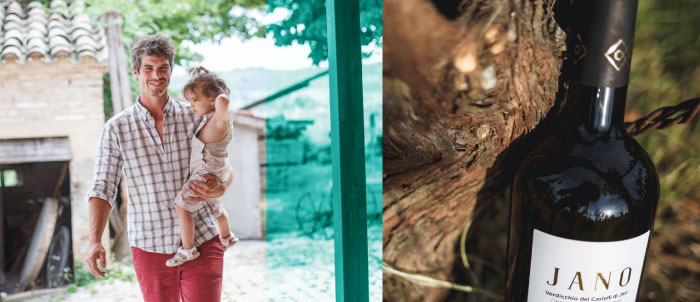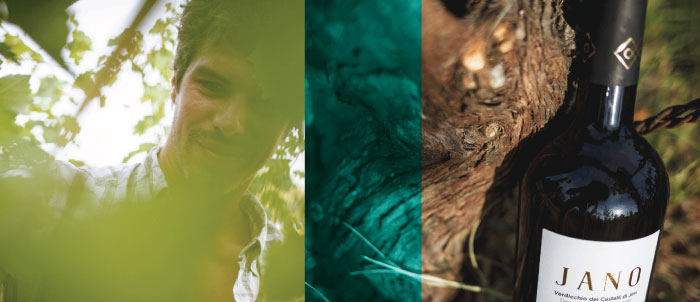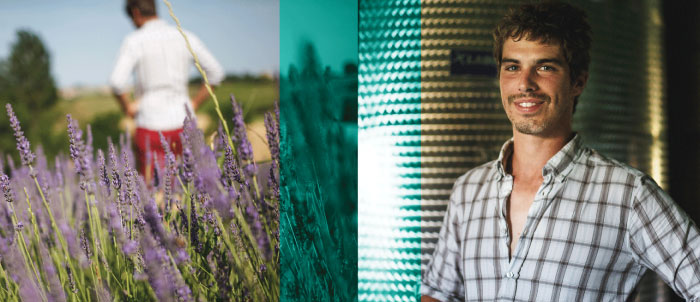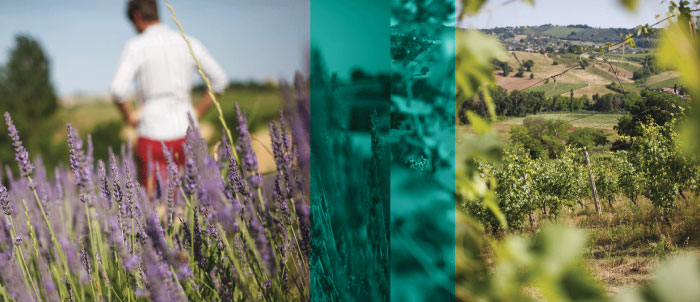COLLE JANO
BUSINESS: Colle Jano
ADDRESS: via Rovejano 15, Cupramontana (AN)
EMAIL: info@collejano.com
WEBSITE: www.collejano.com
“ON CAMPUS” COURSE: ReStartApp 2014
We decided to bet on the reclamation of these abandoned Verdicchio vineyards. The name of our business – Colle Jano (Janus Hill) – draws inspiration from the myth of Janus, the god with two faces, and reflects our philosophy: looking back at the past, by reclaiming ancient vineyards, and orienting ourselves toward the future thanks to a modern, top-quality product.
Filippo Resente
Filippo Resente was born in Veneto, in the Colli Euganei. Three years ago, he, born in 1985, and his wife Giulia Grilli, born in 1988, purchased a plot of land in Cupramontana (Ancona), in the area where PDO wine Verdicchio Castelli di Jesi Doc is produced.. It was seven hectares overall, three of which are currently vineyards. “I did not have any wine-making knowledge or skills, I had never worked in the wine growing sector”, says Filippo as he opens a bottle of his “Jano 2018”. Let us take a step backwards: Filippo and Giulia met in 2014 at the residential course ReStartApp.Both took part in that first edition, held in Grondona (Alessandria). “When I enrolled in the course I wanted to start a snail farm – explains Filippo – but I did not own any land. I had been working in Canada for 4 years and I came back to Italy on the day before the course started. I had sent my application from abroad because I was looking for new stimuli and a different way of life. I worked in the mining sector, a diamond mine in the Canadian Subarctic. I spent my summers carrying out monitoring surveys and my winters processing data. I used to live most of the year inside a container. Although I had some career prospects, I needed to change and I wanted to get involved in sectors related to my studies, i.e. environmental science and hydrogeology”.
Snail farm
“I developed an interest in this sector, that’s why I submitted a snail farming project to ReStartApp – says Filippo Resente – But this kind of farming is hardly sustainable. There are environmental problems due to access to water as well as external factors, like crow attacks on snails”. Other challenges are posed by the market, which is essentially in the hands of a few groups. One business is based in Cherasco (Cuneo), another one in Viterbo, a third one in Sicily: almost the entirety of Italy’s snail production is in the hands of these three players – explains Resente – Although there is high demand for snail slime, many small businesses are not able to survive and there is a quick turnover on this market Widespread awareness of the existing demand for snail slime encourages new start-ups to enter the market, but in a few years’ time they end up bankrupt. Snail farming activities in Italy cover about 9 thousand hectares.
